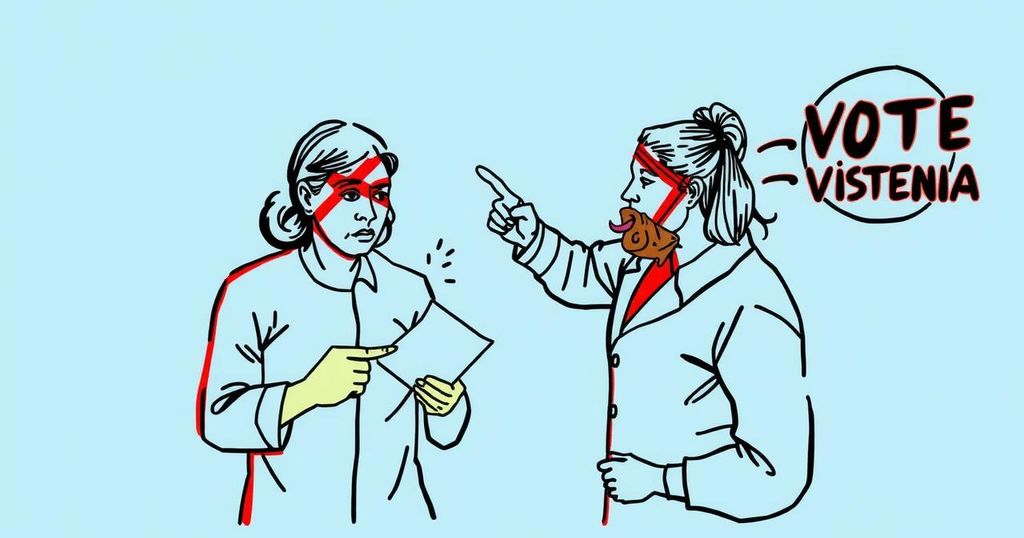Argentina, under President Javier Milei, surprises the world by being the only country to vote against a UN resolution aimed at ending gender violence, signifying a shift towards radical right-wing policies. This action, along with other foreign policy changes, draws criticism and indicates a potential regression in Argentina’s commitment to human rights and social progress.
In a surprising political maneuver, Argentina, typically recognized for its progressive stance on social issues, became the sole dissenting voice against a United Nations resolution aimed at curbing gender violence. Initially drafted by France and the Netherlands, the resolution received support from other nations during a UN vote, which included abstentions from countries like Iran, North Korea, and Russia. President Javier Milei’s administration has since faced intense backlash from various political factions within Argentina following this vote, which marks a significant pivot in the country’s foreign policy agenda. The administration’s recent decisions echo a broader trend under President Milei, characterized by radically right-wing positions that seem to align with former U.S. President Donald Trump. This includes the abrupt conclusion of participation in a climate summit and a clear inclination to diverge from multilateral agreements and commitments aimed at promoting social welfare and environmental sustainability. Critics have noted that Milei’s government appears to be stridently isolating Argentina on the global stage, further amplifying concerns about the trajectory of its foreign relations. Milei’s administration has sparked discourse around the future of Argentina’s diplomacy, as local and international observers question the implications of rejecting cooperative international frameworks historically supported by the nation. The president’s recent actions are reminiscent of a cultural war, affecting not only global standing but also domestic policy, eroding previously achieved social gains that characterized Argentina’s political landscape. This period signals a tumultuous shift in Argentina’s social policy and foreign alliances, as critics warn of the ramifications of abandoning progressive socio-political norms. Amidst the upheaval, Milei’s cabinet reshuffles have led to the removal of critical officials in the foreign ministry, indicating a consolidation of his administration’s clout and a quest to reshape the nation’s diplomatic strategy. Moving forward, the ramifications of these policies will likely yield significant national and international consequences, reshaping how Argentina engages on global issues. The effects of these transformative decisions are unfolding, with a growing concern that Argentine society could suffer setbacks in regard to social progress as Milei continues to pursue libertarian-driven reforms. Critics within and outside Argentina have raised urgent alarms about this altered course, warning that Milei’s pattern of conduct could jeopardize hard-fought advancements in gender equality, environmental action, and broader human rights initiatives.
The recent voting behavior of Argentina at the United Nations underscores a stark departure from its historically progressive policies, particularly concerning gender issues and social justice. Under President Javier Milei, who has embraced a radical right-wing agenda akin to that of Donald Trump, the country has shifted toward isolationist stances rejecting traditional multilateral cooperation. This change is particularly significant in light of Argentina’s previous commitments to human rights and its participation in global efforts to combat issues like gender violence and climate change, which are traditionally supported by a diverse coalition of states. With Milei’s administration at the helm, these abrupt shifts raise pertinent questions regarding the future trajectory of Argentina’s domestic and foreign policies.
In conclusion, Argentina’s recent vote against the UN resolution to end gender violence signals a profound shift in its foreign policy under President Javier Milei. This decision, along with other radical changes in policy and international relations, reflects a stark break from Argentina’s social democratic tradition and raises significant concerns about potential regressions in human rights, gender equality, and climate commitments. As this administration continues to navigate its relationships both domestically and internationally, the implications of its policies may redefine Argentina’s position in global governance and social progress.
Original Source: apnews.com






